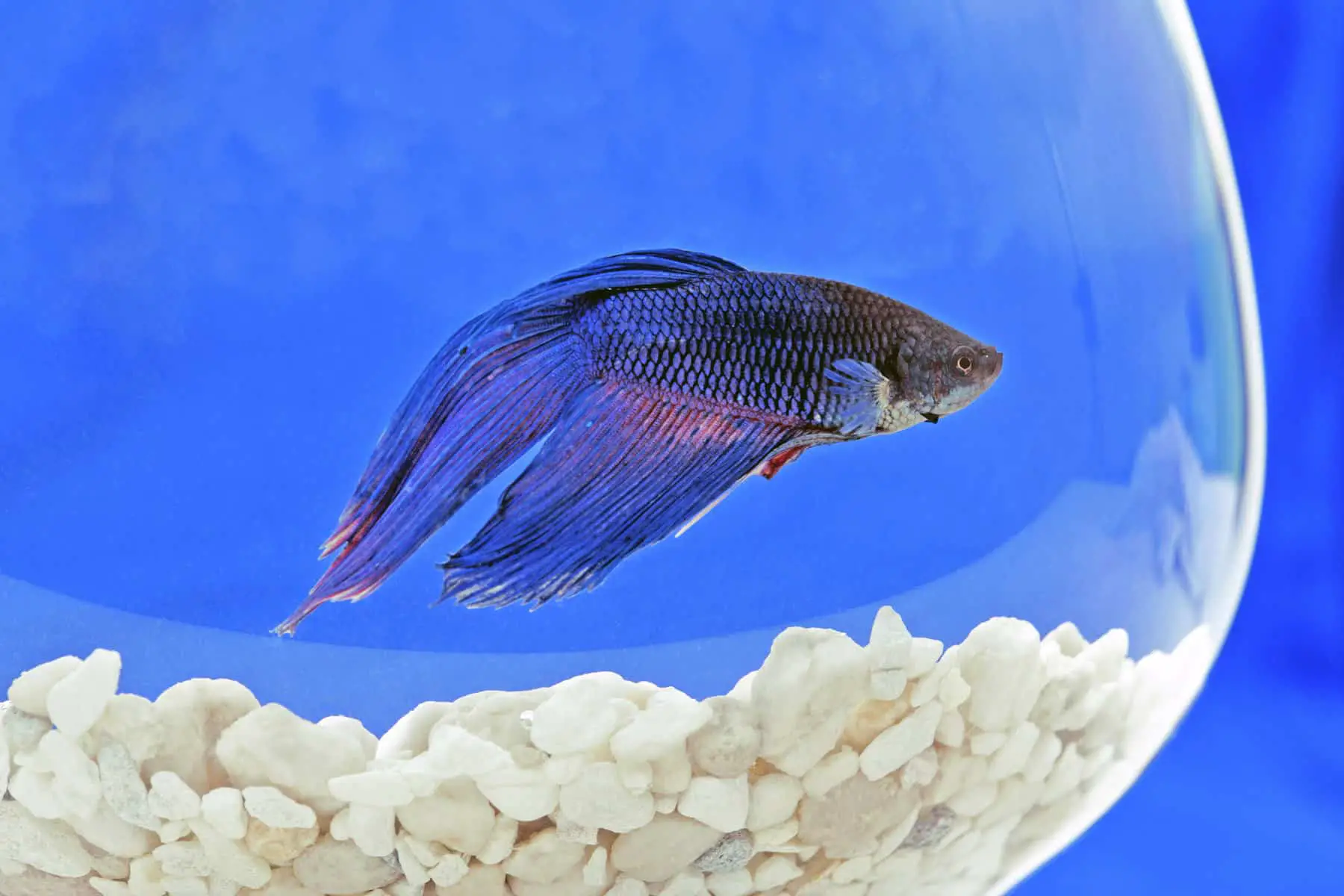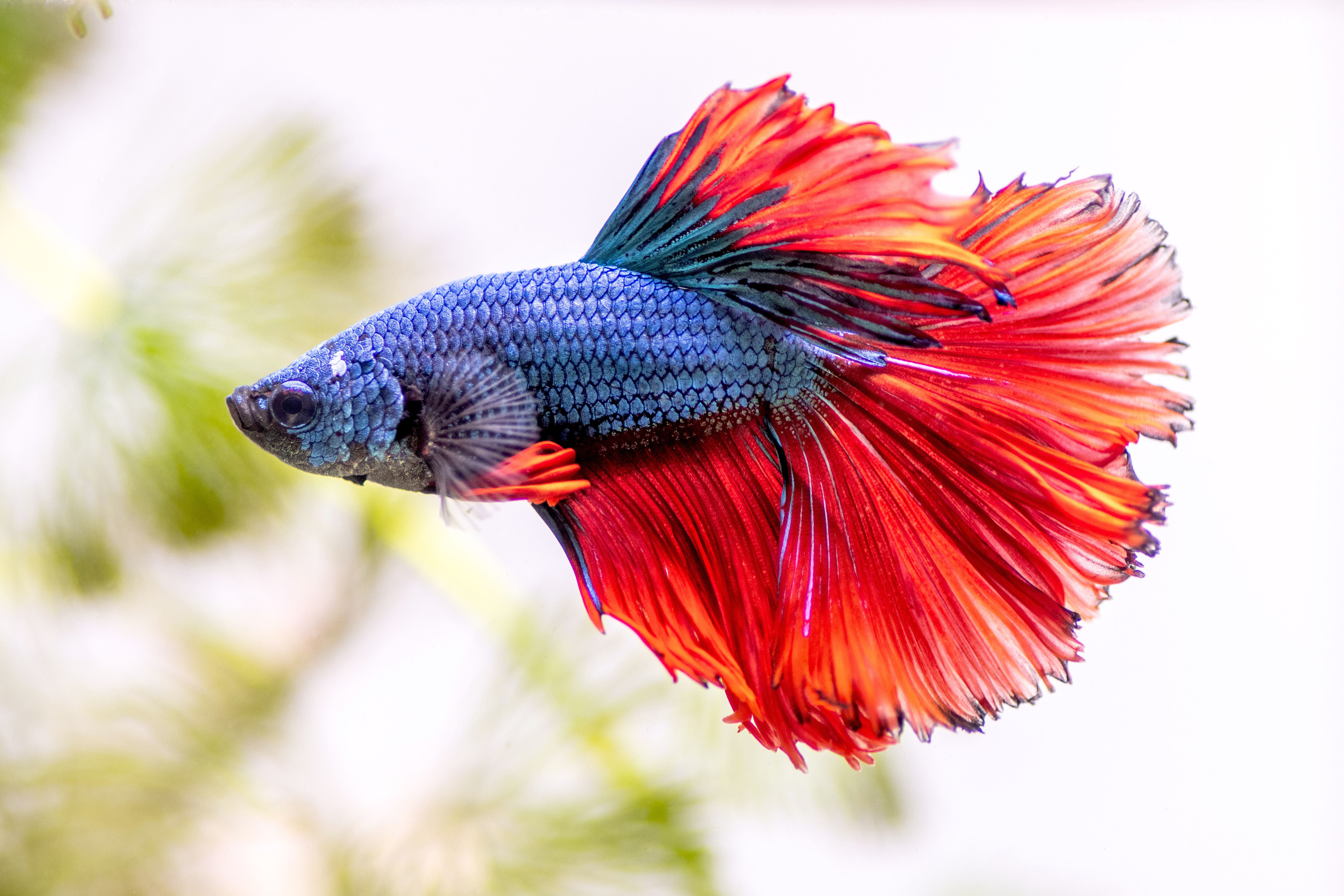Last Updated on 10 months by admin
Betta fish are some of the most popular and beautiful fish to keep as pets. They are known for their vibrant colors, unique personality, and ease of care. However, there is one question that pet owners often ask: how long do Betta fish live in a bowl?
Unfortunately, there is no straightforward answer to this question. It depends on various factors such as the size of the bowl, the water quality, and the care provided. In this article, we will explore the lifespan of Betta fish in a bowl and provide tips on how to ensure your pet fish lives a healthy and happy life.

Understanding Betta Fish Lifespan in a Bowl
Betta fish, also known as Siamese fighting fish, are a popular choice for pet fish. They are known for their vibrant colors and unique personalities. However, there is a common misconception that betta fish can thrive in small bowls or tanks. This article aims to provide insight into the lifespan of betta fish in a bowl and how to properly care for them.
The Lifespan of Betta Fish in a Bowl
Betta fish can live up to five years in captivity if they are properly cared for. However, their lifespan can be drastically shortened if they are kept in a small bowl or tank. Betta fish need at least 2.5 gallons of water to thrive, and anything less can be detrimental to their health.
When betta fish are kept in a small bowl, they are at risk of stunted growth, which can lead to organ failure and eventually death. Additionally, small bowls can quickly become contaminated with waste and bacteria, which can lead to diseases and infections.
To ensure that your betta fish lives a long and healthy life, it is important to provide them with a properly sized tank or bowl, as well as regular maintenance and care.
The Benefits of Properly Caring for Betta Fish
When betta fish are properly cared for, they can live a long and healthy life. Not only does this benefit the fish, but it also provides a rewarding experience for the owner. Betta fish are known for their unique personalities and can become quite attached to their owners.
Additionally, properly caring for betta fish can prevent the spread of diseases and infections. When fish are kept in unsanitary conditions, they are more likely to become ill and spread their illnesses to other fish in the tank.
The Risks of Keeping Betta Fish in a Bowl
Keeping betta fish in a bowl can be risky for their health and well-being. As previously mentioned, small bowls can lead to stunted growth, organ failure, and diseases. Additionally, betta fish are known to be aggressive towards other fish, which can lead to fights and injuries in a small bowl.
Furthermore, small bowls can quickly become contaminated with waste and bacteria, which can lead to foul odors and unsanitary conditions. This can be harmful to both the fish and the owner.
Proper Care for Betta Fish in a Bowl
To properly care for betta fish in a bowl, it is important to provide them with a tank or bowl that is at least 2.5 gallons in size. This will allow the fish to swim and move freely, which is essential for their physical and mental health.
Additionally, it is important to regularly clean and maintain the tank or bowl. This includes changing the water, removing any debris or waste, and adding fresh water and conditioner.
Feeding betta fish a balanced diet is also important for their health. Betta fish are carnivores and should be fed a diet that consists mainly of high-quality pellets and occasional live or frozen food.
The Benefits of a Properly Sized Tank or Bowl
Providing betta fish with a properly sized tank or bowl has many benefits. This includes improved physical and mental health, as well as a longer lifespan. A larger tank or bowl also provides more room for decorations and plants, which can help to create a more natural and stimulating environment for the fish.
Additionally, a larger tank or bowl can help to prevent fights and injuries between fish. When fish have more space to swim and hide, they are less likely to become aggressive towards each other.
The Differences Between a Bowl and a Tank
While betta fish can survive in a bowl, they will thrive in a tank. Tanks provide more space for the fish to swim and explore, as well as a larger surface area for oxygen exchange. Additionally, tanks are easier to maintain than bowls, as they have filtration systems that help to keep the water clean and clear.
Furthermore, tanks provide more opportunities for customization and decoration. This includes adding plants, rocks, and other decorations that can help to create a more natural and stimulating environment for the fish.
The Cost of Properly Caring for Betta Fish
Properly caring for betta fish does come at a cost. This includes the cost of a properly sized tank or bowl, as well as the cost of food and maintenance supplies. However, the cost is minimal compared to the benefits of providing betta fish with a long and healthy life.
Additionally, investing in a larger tank or bowl can be cost-effective in the long run. A larger tank or bowl requires less maintenance and lasts longer than a smaller bowl.
The Verdict: Tank or Bowl?
In conclusion, while betta fish can survive in a bowl, they will thrive in a tank. Tanks provide more space, better filtration, and more opportunities for customization and decoration. Additionally, they are easier to maintain and provide a more natural and stimulating environment for the fish.
Investing in a properly sized tank or bowl is essential for the health and well-being of betta fish. While the cost may seem high, the benefits are well worth it. Properly caring for betta fish can provide a rewarding experience for both the fish and the owner.
Frequently Asked Questions
What is the lifespan of a Betta fish in a bowl?
Betta fish are known for their beauty, but their lifespan depends on how they are taken care of. Betta fish can live up to 5 years in a properly maintained aquarium, but they may only live for a few months in a bowl. Bowls are not suitable for Betta fish as they do not provide enough space and oxygen for the fish to thrive. A bowl also lacks a filtration system, which makes it difficult to maintain a healthy environment for the fish.
In addition, Betta fish need specific water conditions to survive, such as warm water with a pH level between 6.5 and 7.5. Without proper water conditions, Betta fish can develop health problems and die prematurely. It is important to provide a suitable environment for your Betta fish to ensure a long and healthy life.
Can Betta fish survive without a filter in a bowl?
Betta fish can survive without a filter in a bowl, but it is not recommended. A filter helps to maintain the water quality by removing waste and providing oxygen. Without a filter, the water can become stagnant, which can lead to the growth of harmful bacteria and algae. This can cause health problems for the fish and make them more susceptible to diseases.
In addition, Betta fish produce a lot of waste, which can quickly accumulate in a bowl. This can lead to a build-up of ammonia, which is toxic to fish. A filter helps to remove the ammonia and keep the water clean. If you choose to keep your Betta fish in a bowl, it is important to change the water frequently and monitor the water quality closely.
How often should I clean my Betta fish’s bowl?
If you keep your Betta fish in a bowl, it is important to clean the bowl frequently to maintain a healthy environment for your fish. You should change the water in the bowl at least once a week, or more frequently if the water becomes cloudy or smelly.
When cleaning the bowl, remove the fish and any decorations from the bowl and rinse them with warm water. Use a small siphon or turkey baster to remove any debris or waste from the bottom of the bowl. Refill the bowl with fresh, conditioned water that is the same temperature as the water in the bowl. Finally, carefully place the fish and decorations back into the bowl.
What should I feed my Betta fish?
Betta fish are carnivorous and need a diet that is high in protein. You can feed your Betta fish a variety of foods, including pellets, flakes, frozen or live foods such as brine shrimp or bloodworms.
It is important to not overfeed your Betta fish as this can lead to health problems such as constipation and bloating. Feed your fish a small amount of food twice a day, and remove any uneaten food after a few minutes. This will help to prevent the water from becoming polluted and keep your fish healthy.
Can I keep multiple Betta fish in the same bowl?
Betta fish are known for their aggressive behavior and are typically solitary fish. It is not recommended to keep multiple Betta fish in the same bowl as they may fight and injure each other.
If you want to keep multiple Betta fish, you should provide each fish with its own aquarium or tank. Make sure the aquariums are separated by a barrier to prevent the fish from seeing each other. This will help to reduce stress and aggression between the fish.

How Long Do Betta Fish Live? ~ Educational ~ Things To Know: Life-span Of Male & Female Betta
In conclusion, understanding the lifespan of betta fish in a bowl is crucial for any pet owner. Betta fish are beautiful creatures that can bring joy and companionship to your life. However, they also require proper care and attention to ensure they live a long and healthy life.
Firstly, it is important to remember that while betta fish can survive in a bowl, it is not an ideal environment for them. A larger tank with a filter and heater is a better option to provide them with the necessary space and conditions to thrive.
Secondly, a betta fish’s lifespan can be affected by various factors such as water quality, temperature, and diet. Maintaining a clean tank, monitoring the water temperature and feeding them a balanced diet can help to extend their lifespan.
Lastly, as responsible pet owners, we should ensure that our betta fish live a comfortable and stress-free life. Providing them with proper care and attention can not only increase their lifespan but also enhance their overall well-being. By understanding their needs and providing a suitable environment, we can ensure that our betta fish live happy and healthy lives.
